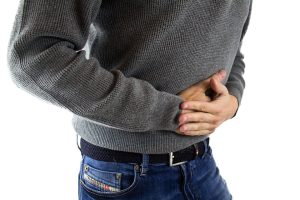
Download the free "5 MUST KNOW AB EXERCISES"
- Follow-along Workout Plan Included
- Start Burning Fat and Tone Up
 Many of the clients from Totowa, NJ, and surrounding areas understand that you need more than just exercise to lose weight and be your healthiest. You need a healthy diet, too. A healthy diet does more than just help you lose weight. It provides nutrition. What you eat also makes a difference in your gut microbiome—the type of bacteria and other microbes in gut. They affect everything from your digestion and the nutrients delivered to your body to your mood.
Many of the clients from Totowa, NJ, and surrounding areas understand that you need more than just exercise to lose weight and be your healthiest. You need a healthy diet, too. A healthy diet does more than just help you lose weight. It provides nutrition. What you eat also makes a difference in your gut microbiome—the type of bacteria and other microbes in gut. They affect everything from your digestion and the nutrients delivered to your body to your mood.
The number of microbes is only estimated and the estimations vary widely. Scientists believe there’s anywhere from 1.3 microbes to 10 microbes for every human cell in the body. Your gut has somewhere between 300 to over 1,000 different species of microbes, with some harmful and others helpful. Microbes are linked to preventing diseases, such as autism, celiac disease, heart disease, obesity, malnutrition and asthma. When you have an imbalance of microbes, it can cause mental disorders and changes in behavior. It can make you feel anxious and depressed, too.
It’s a constant battle for control in your gut with the good bacteria trying to keep the bad bacteria that affect your health in check. Gut bacteria studies on people with mental issues, such as ADHD, OCD, Parkinson’s, Alzheimer’s, bipolar disorder and schizophrenia, show there’s an imbalance or overgrowth of some microbes and too few of others. At first, they thought the imbalance came from the mental disorder, but now believe it may be the other way around. The imbalance can cause intestinal permeability, malnutrition and inflammation, too.
The brain and gut are in constant contact via the vagus nerve, which connects directly to the central nervous system, connecting the lungs, heart and digestive tract. If your gut microbes are out of balance, it can cause inflammation of the gastrointestinal tract. Inflammation affects the entire body, including the brain. The gut-brain axis continues when you consider different types of bacteria which help synthesize different types of neurotransmitters, such as dopamine, GABA and serotonin, which are responsible for making you feel good or calm. The gut also helps make other brain chemicals, such as BDNF—brain-derived neurotrophic factor. It protects the brains and improves the signal strength between neurons. Scientists have found a connection between low BDNF and anxiety, depression and learning.
For more information, contact us today at Prime Fitness Studio